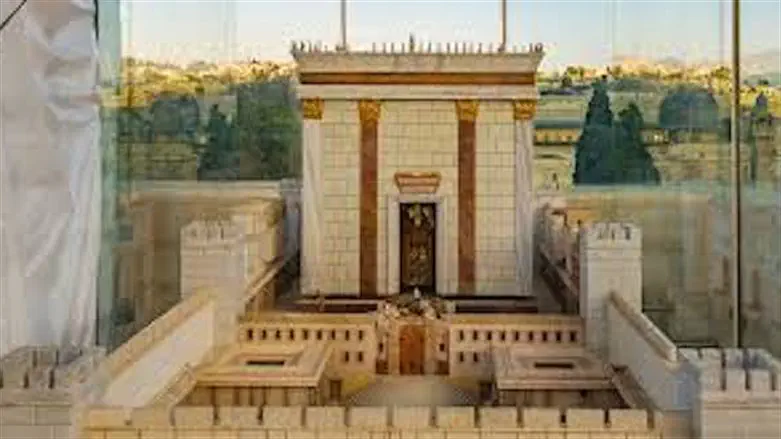
Rabbi Yeroham Simsovic is Rabbi of the Daniel Division and rabbi at Yeshivat Chorev. He is former shaliach at Oxford University
After the giving of the Torah on Mt. Sinai that describes the foundation of the identity of man in accordance with God's will, the parasha of Mishpatim defined the functioning of a proper society. It is not Plato’s Republic or The City of God. It is not a description of some theoretical or ideal state, but the principles of law which ensure the ways for resolving the issues that will surely arise in a real society, with all the flaws and conflicts. It is not the description of a perfect society but that of a society aspiring to perfection.
Now, in the parasha of Teruma, we meet with the instructions given to Moshe for the construction of the Temple that will ensure God's divine presence among the people of Israel. But because we are so used to the fact that this follows that, we miss the fact that these instructions should come as a complete surprise. And even more surprising is the fact that it is not so. The children of Israel are ready for this challenge. Moshe just needs to know what to say, and the children of Israel, from their own initiative and free will, will know to make the donation for the Temple.
Indeed, the question of the Temple is present in the conscious of the children of the forefathers since Abraham, who called it “mountain”, and Isaac who called it “field”, and Jacob who called it “house”. From the outset they were supposed to build it in its right place, in the very place where they were supposed to receive the Torah “for out of Zion shall the Torah come forth, and the word of the Lord from Jerusalem.”
But the difficulty of coming back from exile and especially the difficulty to recognize and admit that while the actions of Moshe, Aaron and Miriam are necessary in the human reality, it is God himself who takes them out from Egypt, He and not an angel, He and not an envoy, and He is also the one who delays them in the desert. Because of that reason there is a need to build a desert Tabernacle according to the Torah that was given in the desert, in preparation to the suitable time in which it will be possible to start building the Temple at the site reserved for it.
And as the people of Israel was chosen from all the nations, so the Tabernacle was intended to be built by Israel, but with contributions from any man from all the nations who so desired. But the golden calf initiated by the mixed multitude that joined the Israelites during the Exit from Egypt changed this plan. In time, after the unification of all the tribes of Israel on their land after the coming of the son of David, who it was said upon to David “he who is going to build a house for my name”, to complete what started his son Salomon by building a Temple.
And indeed the Haftara comes to continue and complete the building of the Tabernacle in the desert with the building of the first Temple by Salomon with the help of Hiram who comes from the nations to start the continuation of the process that began in the desert but not yet in a perfect way.
Indeed this first Temple is just the beginning, a seed to the last Temple that will last forever. The Temple of Salomon is perfect only as a beginning and head, having been built by he who was the head of Israel and acting in their name. He also continues the tentative of associating men from the nations in its construction. Starting from Hiram king of Lebanon whose name evokes the elevation of life, continuing with Adoniram whose name means My Master is elevated. They act as representatives of Israel and of the Nations to prepare the ground for the time to come when all flesh will come to prostrate themselves to Hashem, on the mountain of sanctity, in Jerusalem.
For comments: yerohams@yahoo.fr
Torah MiTzion stands in the forefront of the battle for the future of the Jewish people in the Diaspora, offering religious-Zionist Torah scholarship to Jewish communities throughout the world and strengthening the bond between the Jewish people in the Diaspora and in Israel via the study of Torah.